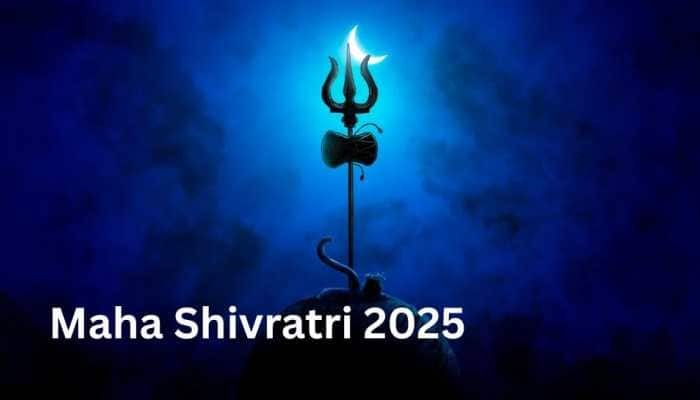
Maha Shivratri is a Hindu festival that is celebrated to honor Lord Shiva. The translation is “The Great Night of Shiva," and in 2025 it will be celebrated on February 26. Celebrators in India and across the world engage in numerous practices, with fasting being the most central one. This article breaks down the details of this event including the fasting rules, when to break the fast, and the necessary dos and don'ts to observe during Maha Shivratri 2025.
According to drik panchang, Shivaratri Parana Time - February 27, 06:48 AM to 08:54 AM
Importance of Fasting on Maha Shivratri
When fasting during Maha Shivararti, abstention from food is not the only thing one does, it’s also a spiritual practice aimed towards purifying the mind and body. This practice makes it easier to focus during prayers and when meditating which creates a more profound bond with Lord Shiva. A fast like this promotes self-restraint, devotion, and discipline which helps in overcoming the ignorance and darkness in a person’s life.
Types of Fasting
Depending on the individual’s health and spiritual inclination, devotees may choose from different options of fasting.
Nirjala Fast: A type of fasting in which a person does not consume any food or water for an extended period.
Phalahar Fast - allows consumption of fruits, milk and nuts which makes fasting easier. The food consumed is nutritious and contains respect of fasting.
Partial Fast - Shorthand of fast, worshippers take meals which do not include food categories of grains, lentils or salt while include items made with kuttu, sabudana and sendha namak.
Ending the Fast
The rituals of breaking the fast starts the morning after completing the Maha Shivratri and once the ritual bathing along with praying is performed. In order to reap the maximum spiritual benefits, it is best to break the fast from sunrise up until the Chaturdashi Tithi has come to an end.
Recommended Foods
During the fast, devotees are encouraged to consume foods that are best suited to fasting.
Fruits – Bananas, apples, papaya, pomegranate
Dairy – Milk, yogurt, paneer
Root vegetables – Potatoes, sweet potatoes, pumpkins
Flours – Kuttu, singhara
Nuts and seeds – Almonds, walnuts, melon seeds
Beverages – Coconut water, herbal tea, and juices
Use of sendha namak is preferred in place of table salt for most meals.
Foods Not To Eat
In order to protect the significance of fasting, the following foods should not be eaten.
Grains- Wheat, rice, lentils
Vegetables include onion, garlic, and mushrooms
Spices: Haldi and mustard seeds.
Non-Vegetarian Food: Includes flesh, seafood, and poultry.
Processed and Packaged Foods: Includes market snacks ‘chips,’ ‘cookies’ as well as ‘fastfood.’
Regular Table Salt: Use rock salt instead.
These items should be avoided for the purposes of fasting and its aims.
What One Can Do And Cannot Do While Fasting On Maha Shivratri
Can Do:
Early Rising: To begin the day, one should take a bath and purify the body with water during Brahma Muhurta-two hours before sunrise.
Sankalp: Make a vow to fast with devotion and seek blessings from Shiva at the start of the day.
Regular Offerings: Do puja four times during the day while offering Bilva leaves, milk, honey, and fruits to the Shiva Lingam.
Mantra Chanting: Repeatedly say ‘Om Namah Shivaya’ and other mantras dedicated to Shiva in order to think about him during the entire day.
Meditation: Take part in meditation in order to achieve inner peace and divine consciousness.
Cannot Do:
Eating Forbidden Food Items: Do not consume grains, meat, onions, garlic, and common salt.
Restricted Forms of Offering: Do not offer items to the Lingam of Shiva like Kumkuma, coconut water, Tulsi leaves, and so on because these offerings are not accepted.
Full Parikrama: Do not go around the Shiva Lingam fully. Rather perform the prescribed half circumambulation.
Negative Emotions: To help maintain the quality of the fast, it is best to get rid of anger, jealousy, and other negative emotions.
Sleeping During The Day: On the night of Maha Shivratri, people are supposed to stay awake while praying and meditating, that is, staying awake all night.
Compliance with these recommendations guarantees a spiritually fulfilling observance of Maha Shivratri. Those who are willing to observe the dos and don’ts along with the no’s and yes’s of the rituals will understand the great strength of this day.
Read More: Baba Shyam Calls You Why This Year’s Khatu Shyam Lakhi Mela Will Be Different

 Share
Share_1820244660_100x75.jpg)
_365039172_100x75.jpg)
_1405734818_100x75.jpg)
_822217780_100x75.jpg)
